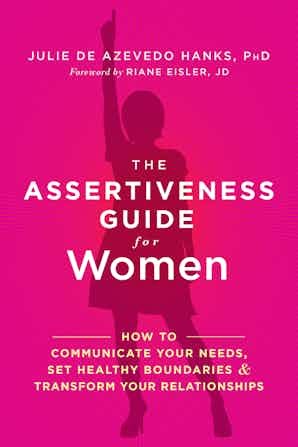Julie de Azevedo Hanks, PhD, LCSW
No one wants to be known as a “guilt tripper.” And yet, we all engage in using guilt to motivate others to do what we want them to do. A guilt trip is when you use guilt as a form of emotional manipulation to get someone to think or act a certain way. It’s something that we’ve all done at times and we’ve likely all been on the receiving end of a guilt trip.
The antidote for using guilt trips is assertive communication. Assertiveness is often misunderstood as being aggressive, domineering, and pushy, or saying whatever is on your mind. I define assertiveness as a way of communicating that is clear, confident, and self-assured. Assertiveness is sharing what you think, feel, want, and need, articulating your unique sense of self, and maintaining your connection with others.
Here are 5 ways to stop laying guilt trips and start communicating assertively:
1) Identify Your Needs and Wants
This sounds simple, right? And yet identifying what we need and want in relationships is not necessarily easy. Identifying what you want and need is crucial to assertive communication. You have to know what you want before you can express it directly and clearly. Give yourself permission to have and identify your feelings, thoughts, needs and wants. It is often the uncomfortable emotions and thoughts that can help you determine what you need and want in a relationship.
2) Make Direct and Specific Requests
Next, ask for what you want and need directly. For example, a guilt tripper might say something like, “If you really cared about me, you’d take me to my doctor appointment.” Instead, try something like, “I need a ride to my appointment; would you be willing to take me? I would really appreciate it.” Be straightforward about what you need and what you’re hoping the other person will do.
3) Build Relationships, Not Expectations
People who use guilt to influence others are often thinking more about what they want than about who they’re asking. Building strong emotional connections with others is important because relationships are what inspire others to respond to requests. Love is a lot more inspiring than guilt when it comes to responding positively.
4) Take Responsibility for Your Feelings
A person who uses guilt trips as a communication strategy often tries to hold other people accountable for their feelings. If someone else is responsible for your painful emotions, then they should fix it, right? In a divorced family situation, a mother might say to her daughter, “If you go with your dad this weekend, I’ll be all alone. I’ll miss you so much.” This is unfair to a child, as it’s not her responsibility to alleviate her mom’s loneliness. The woman in this situation should instead own her feelings and seek out companionship in other ways. Remember that your feelings are your own.
5) Explore the Emotional Undercurrent
If you use guilt more than just occasionally, there is likely something deeper motivating you to use that strategy. Are you trying to control someone with guilt in order to compensate for a time in your life where you felt powerless? Are you repeating a default communication pattern that you learned in your family of origin? Recognizing this pattern may help you gain new awareness of your communication style and ways you can more effectively communicate.
 Julie de Azevedo Hanks, PhD, MSW, LCSW is a licensed therapist specializing in self-care and relationships. Learn more about women and assertiveness by checking out The Assertiveness Guide for Women.
Julie de Azevedo Hanks, PhD, MSW, LCSW is a licensed therapist specializing in self-care and relationships. Learn more about women and assertiveness by checking out The Assertiveness Guide for Women.



 Why Journaling Is Especially Helpful to Adult Children of Emotionally Immature Parents
Why Journaling Is Especially Helpful to Adult Children of Emotionally Immature Parents